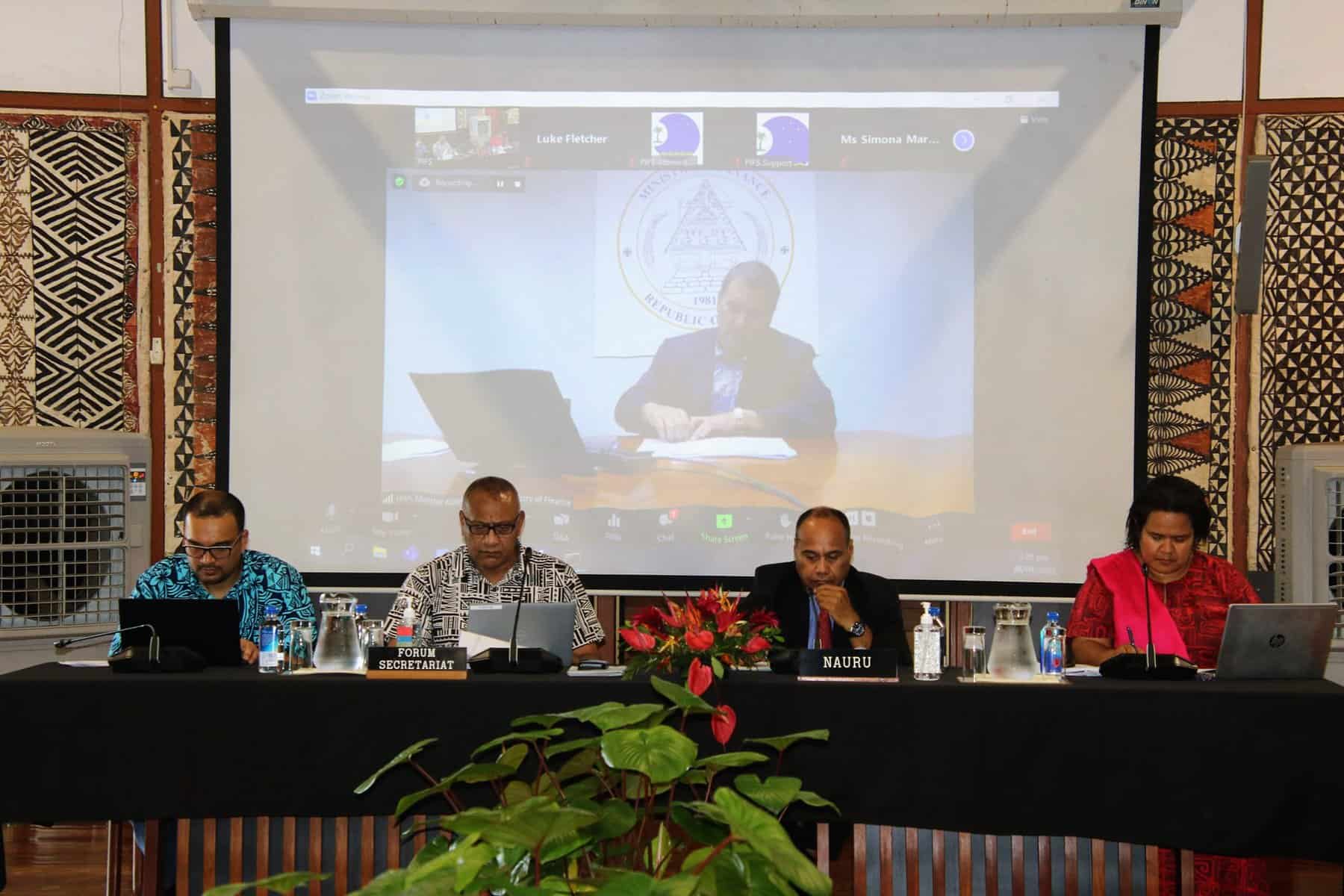The First Pacific Regional Debt Conference earlier this month saw Pacific Island Forum Economic Ministers raise the need for urgent talks between Forum Island Countries, creditors, and development partners for proactive and realistic responses to the unprecedented levels of public debt in the Pacific.
In his opening remarks, the Secretary General of the Pacific Islands Forum, Henry Puna highlighted the Pacific’s economic challenges and said the financial and social impacts of the pandemic require global solutions. ‘We are all in this together, we are in the same canoe. I hope we can work together and support each other because the ability of our small members to repay their debt obligations is also good for our lenders.’
The Conference, themed “Addressing Debt Sustainability in the Pacific in the Aftermath of COVID-19”, was set against the backdrop of recent Debt Sustainability Assessments of the International Monetary Fund. These placed most Pacific Countries at a high level of debt distress; the impact of COVID-19 on Government revenues has elevated fiscal deficits, and increased pressure on borrowing capacity constraints.
“This has also been exacerbated by the prevalence of natural disasters and climate-related events that will deepen government budget deficits and exacerbate the debt distress across the region. Innovation for more agile, smarter, adaptative and transformative development is the key to thriving in this new normal induced by COVID-19”, SG Puna added.
As FEMM Chair, the Finance Minister of the Government of Tuvalu, Seve Paeniu delivered keynote remarks at the opening session. “As Ministers of Finance presiding over this unprecedented time in our history, we have a duty and a responsibility to our people, to address this threat, and to build up our savings for a rainy day,” he said.
The Executive Secretary for ESCAP, Armida Salsiah Alisjahbana, in her welcome remarks highlighted that one of the key areas for consideration is debt relief and the need to strengthen the global debt architecture. This would facilitate expedient, fair, and effective debt workouts when needed, as well as integrating debtor countries’ vulnerability to shocks into concessional loan decisions and debt risk assessments – for which a multidimensional vulnerability index could play a useful role.
This was echoed by the United Nations Deputy Secretary General, Amina Mohammed, who emphasized the need to accelerate the operationalisation of the G20’s Common Framework for Debt Treatment. The impact of the Ukraine crisis and a prolonged disruption in energy and food markets is having a detrimental impact on the debt situation in the Pacific Island Countries and the global community should be prepared to adopt emergency measures, including a reinstatement of the Debt Services Suspension Initiative, she said.
The event was co-convened by the Governments of Fiji and Tuvalu and co-hosted by the Pacific Islands Forum Secretariat and the Economic and Social Commission for Asia and the Pacific (ESCAP).
The hybrid conference was attended by Pacific Forum Member Countries Ministers of Finance, the Minister of Finance for Indonesia, Sri Mulyani Indrawati, major multi-lateral and bi-lateral development partners, and key partners in development financing such as the Green Climate Fund, the Pacific Catastrophe Risk Insurance Company and Professor Jeffrey Sachs, a world-renowned advocate for sustainable development solutions. Civil society and youth voices were also represented as well as the private sector. The conference also featured members of the Alliance of Small Island States, with Barbados, Antigua, and Barbuda, Seychelles, and Belize.
The outcomes of the conference will be tabled to the COVID-19 Economic Recovery Taskforce for endorsement, then tabled at the next Forum Economic Ministers Meeting in Vanuatu later this year.
